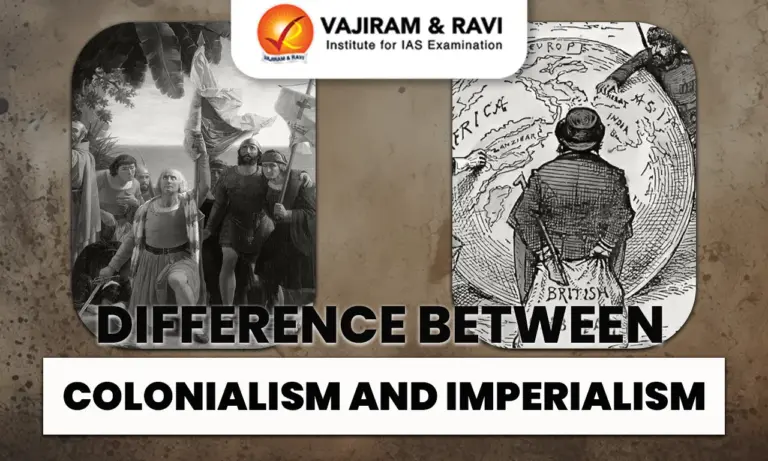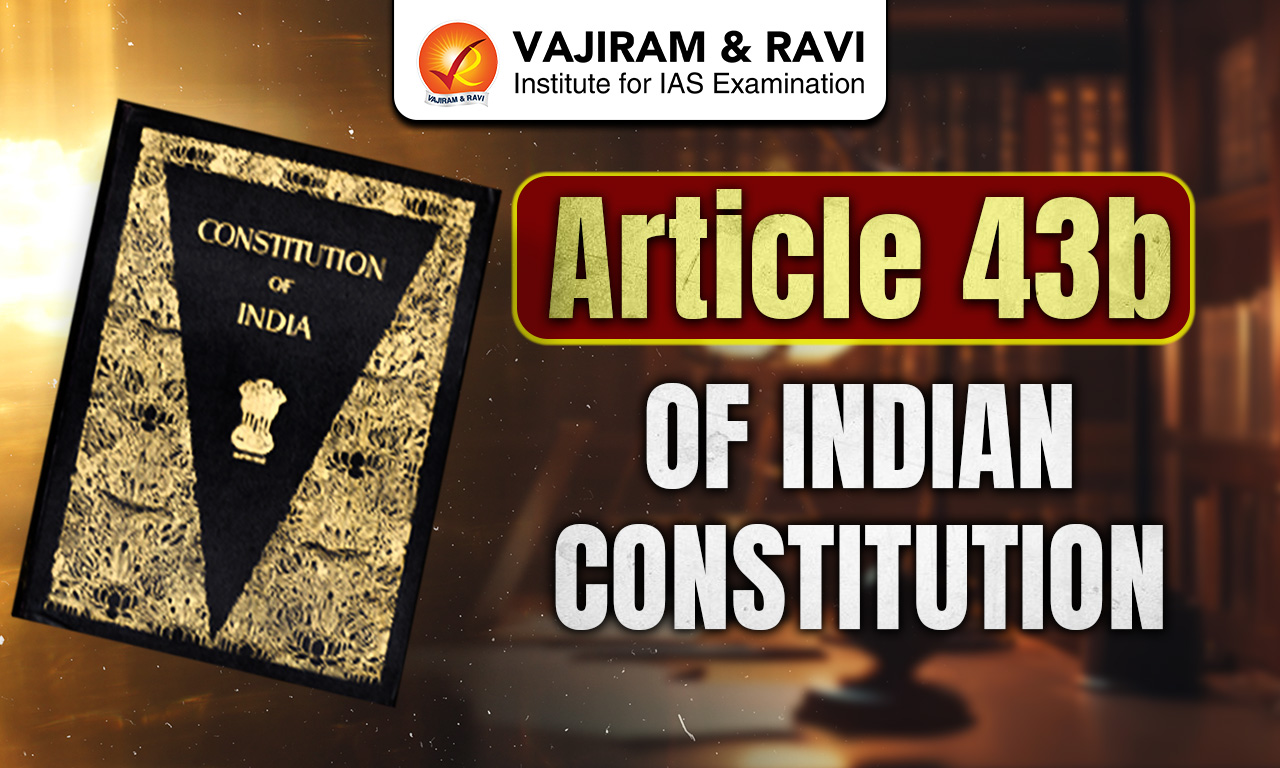Colonialism and Imperialism are often used interchangeably, however, they represent two distinct concepts with specific characteristics. Both involve political and economic domination over other regions, yet their methods and implications differ. Colonialism typically refers to the direct and physical establishment of settlements or colonies in a foreign land, often accompanied by the migration of settlers and administrative control. In contrast, Imperialism denotes a broader policy of extending a nation’s influence through conquest, diplomacy, or economic dominance without necessarily involving settlement.
Colonialism
Colonialism is a system in which one country takes control over another, often by setting up settlements and extending its influence in political, economic, and social spheres. The main goal behind this control is to use the resources, labour, and wealth of the colonized land to benefit the colonizing country. This often involved exploiting local populations and restructuring local economies to serve foreign interests.
Key Features of Colonialism
- Establishment of permanent settlements.
- Direct political rule and governance over the colony.
- Exploitation of natural resources and labor.
- Often involves cultural assimilation or ethnic domination.
- Notable colonial powers: Britain, France, Portugal, Spain.
Example: British colonization of India from 1858 to 1947 is a classic case of colonialism, involving direct administrative control and economic exploitation.
Imperialism
Imperialism is a broader concept referring to the extension of a nation’s power through diplomacy, economic influence, or military force, often without direct settlement. It can include colonialism but also covers indirect control, economic dominance, or strategic influence.
Key Features of Imperialism
- May or may not involve physical occupation.
- Involves economic, political, or military control.
- Focuses on expanding a nation’s influence and territory.
- Can operate through puppet governments, economic dependency, or military dominance.
- Notable imperial powers: British Empire, Soviet Union, United States.
Example: The US influence in Latin America through military interventions and economic policies is often considered imperialism without formal colonization.
Difference between Colonialism and Imperialism
Colonialism and Imperialism can be distinguished based on several factors, including their definitions, underlying processes, historical origins, patterns of settlement, and economic-political objectives.
| Difference between Colonialism and Imperialism | ||
| Aspect | Colonialism | Imperialism |
|
Definition |
Practice of acquiring and maintaining colonies |
Policy of extending a country’s power and influence |
|
Form of Control |
Direct control through settlement and governance |
Can be direct or indirect control (political, economic, or military) |
|
Presence of Settlers |
Often involves settlement of colonizers in the foreign land |
Does not necessarily involve settlers |
|
Objective |
Economic exploitation and political control |
Expansion of influence, economic or strategic advantage |
|
Historical Examples |
British rule in India, French rule in Algeria |
American influence in Latin America, Soviet dominance in Eastern Europe |
|
Scope |
A form of imperialism |
Broader concept that includes colonialism |
Last updated on March, 2026
→ UPSC Notification 2026 is now out on the official website at upsconline.nic.in.
→ UPSC IFoS Notification 2026 is now out on the official website at upsconline.nic.in.
→ UPSC Calendar 2026 has been released.
→ UPSC Final Result 2025 is expected to be released soon.
→ Check out the latest UPSC Syllabus 2026 here.
→ Join Vajiram & Ravi’s Interview Guidance Programme for expert help to crack your final UPSC stage.
→ UPSC Mains Result 2025 is now out.
→ UPSC Prelims 2026 will be conducted on 24th May, 2026 & UPSC Mains 2026 will be conducted on 21st August 2026.
→ The UPSC Selection Process is of 3 stages-Prelims, Mains and Interview.
→ Prepare effectively with Vajiram & Ravi’s UPSC Prelims Test Series 2026 featuring full-length mock tests, detailed solutions, and performance analysis.
→ Enroll in Vajiram & Ravi’s UPSC Mains Test Series 2026 for structured answer writing practice, expert evaluation, and exam-oriented feedback.
→ Join Vajiram & Ravi’s Best UPSC Mentorship Program for personalized guidance, strategy planning, and one-to-one support from experienced mentors.
→ Check UPSC Marksheet 2024 Here.
→ UPSC Toppers List 2024 is released now. Shakti Dubey is UPSC AIR 1 2024 Topper.
→ Also check Best UPSC Coaching in India
Difference between Colonialism and Imperialism FAQs
Q1. Are colonialism and imperialism the same?+
Q2. Can a country be imperialist without being colonialist?+
Q3. What is neo-imperialism or neo-colonialism?+
Q4. How did colonialism end?+
Q5. Is colonialism a type of imperialism?+


















